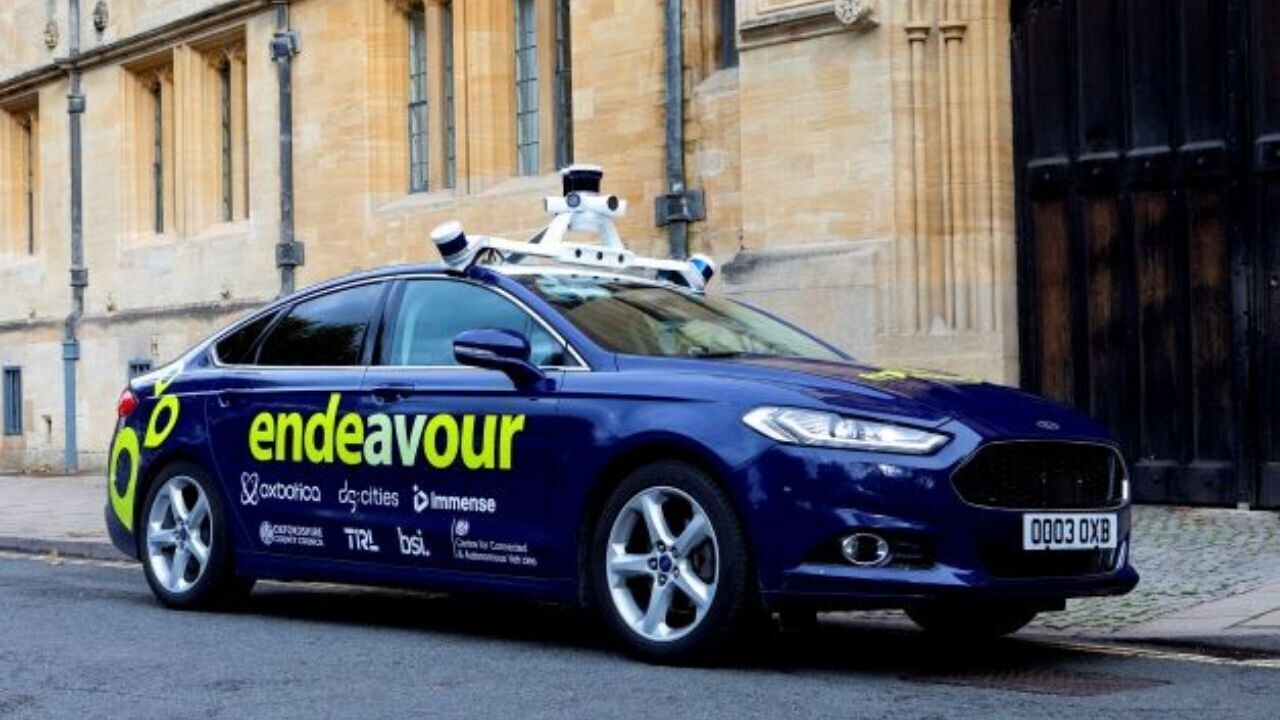This article was originally published by Christopher Carey on Cities Today, the leading news platform on urban mobility and innovation, reaching an international audience of city leaders. For the latest updates, follow Cities Today on Twitter, Facebook, LinkedIn, Instagram, and YouTube, or sign up for Cities Today News.
Results from the UK’s first multi-city autonomous vehicle(AV) trial have revealed that 55 percent of respondents would not feel comfortable using a self-driving car if given the opportunity,
Findings from a national survey – which analysed 2,500 responses – also found that just 30 percent of those surveyed believed self-driving vehicles will be safer than traditional vehicles, with 44 percent disagreeing and 26 percent undecided.
The survey, compiled by DG Cities, an innovation company born out of the Borough of Greenwich, found a general reluctance among drivers towards the new technology – with safety cited as a key concern.
Ed Houghton, Head of Research and Service Design at DG Cities, said: “Our work with the public shows just how vital open technology trials are to informing people, developing knowledge and building trust.
“Project Endeavour has given us many insights – it became clear that very few people understand how autonomous vehicles make decisions, or have considered their safety or potential benefits.
“Our research shows that as the technology evolves, technology developers, researchers and government will need to outline why the technology matters, how it works, and importantly what it might mean for people in the future. It’s the only way to build wider acceptance – and I’m pleased to see government-led initiatives doing just that.”
Project Endeavour
Last August, the practical element of Project Endeavour concluded in London, with 70 members of the public taking part in on-road demonstrations.
Over the course of two weeks, the Oxbotica vehicles were tested, with participants’ perceptions of AV safety analysed by consortium partner DG Cities.
The trials were run in conjunction with the London Borough of Greenwich, and followed previous events in Oxford and Birmingham.
DG Cities says the on-road demonstrations have shown the value of live public trials in building trust.
Before the live trials, 68.3 percent of participants agreed that AVs would be safer than human-driven vehicles, and after, 83.6 percent agreed.
Different perspectives
During the on-road demonstrations, the AVs completed a five-mile urban route around Greenwich streets, giving partners the opportunity to model the complex and busy network and exposing the vehicle to varied traffic and weather conditions.
Participants were accompanied by two members of the trial team, and the public were also offered a virtual reality experience to explore what it’s like to be in an AV as it moves through a typical urban setting.
“One of the key takeaways from Project Endeavour is the importance of understanding a range of different perspectives, not just looking at headline trends,” said Trevor Dorling, Managing Director, DG Cities.
“It was hugely valuable to hear a diverse community of citizens throughout the trial, including people with specific, more complex mobility needs.”
Age was found to be a significant factor in the nationwide survey, with over a third (34.8 percent) of respondents aged 18-35 agreeing they would be ‘confident using an AV tomorrow’, compared to a fifth (20.5 percent) of those aged 55 and over.
Get the TNW newsletter
Get the most important tech news in your inbox each week.






